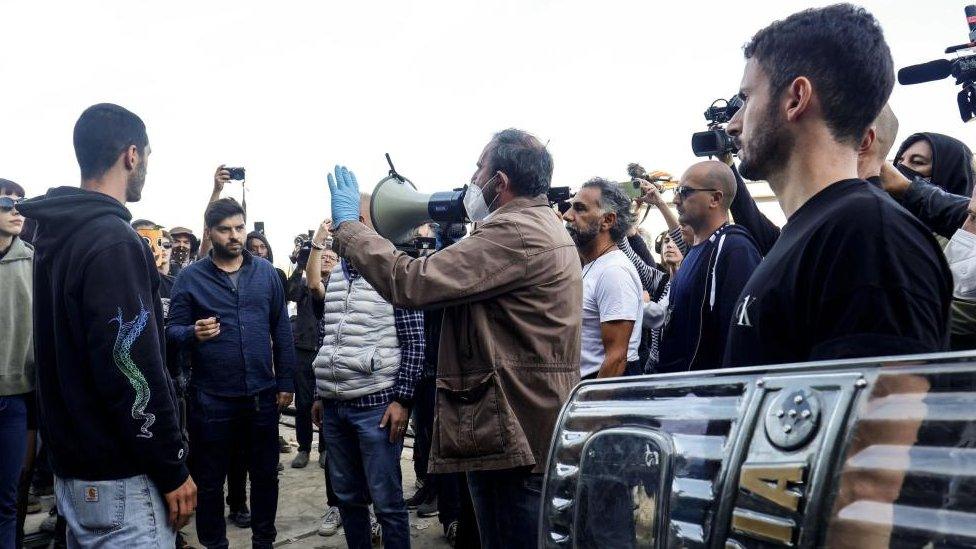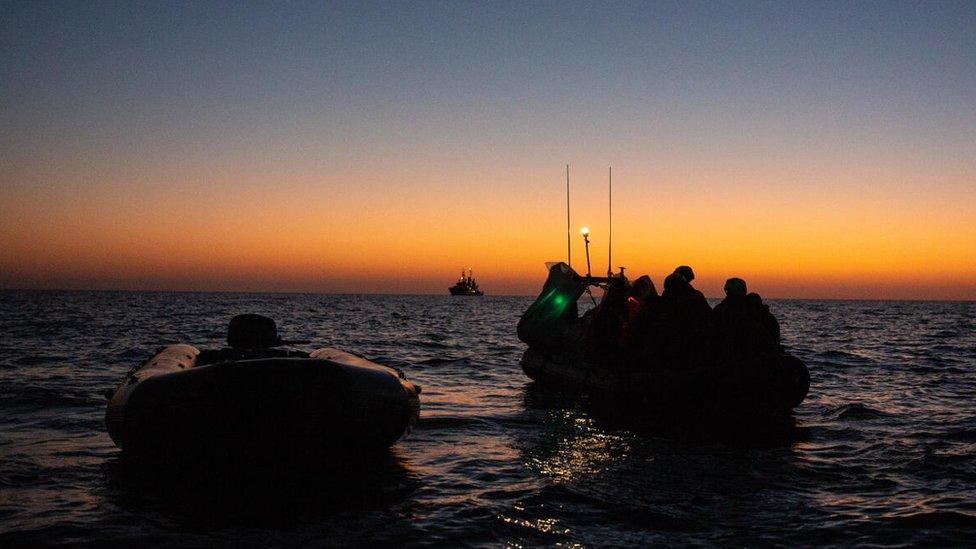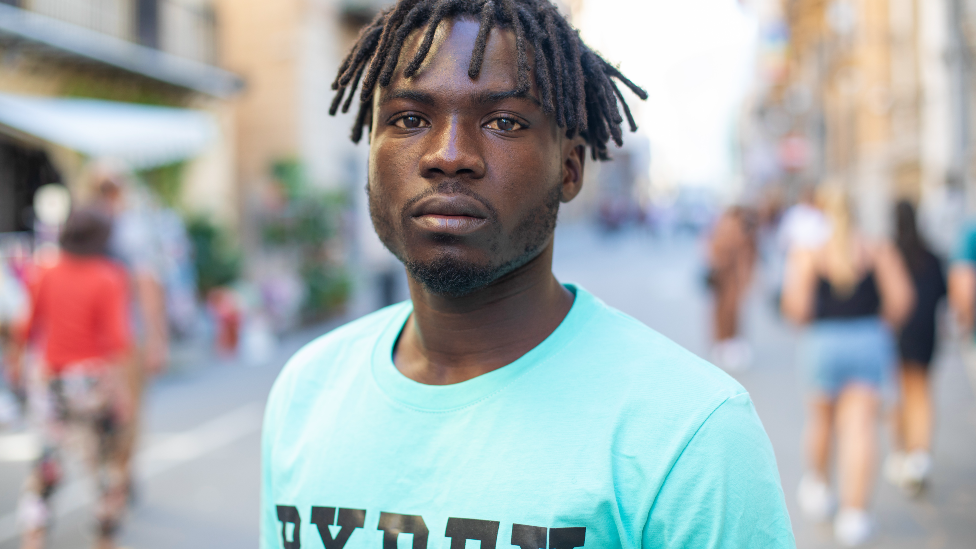Italy's right-wing government to criminalise raves
- Published

The two-day rave ended on Monday after police asked people to leave
The new government of far-right PM Giorgia Meloni has said it will make staging unlicensed raves a crime, hours after stopping one in northern Italy.
The new crime of "invasion for dangerous gatherings" of more than 50 people would attract up to six years in jail and opens up the possibility of wiretapping rave organisers.
A thousand ravers were ordered to leave a warehouse rave in Modena on Monday.
"The party's over!" declared far-right minister Matteo Salvini.
Residents had complained of 48 hours of non-stop techno music at the Halloween party that attracted young ravers via social media from nearby Italian cities as well as Belgium and France.
The ravers had planned to stay until Tuesday but left the disused warehouse in northern Modena without trouble and witnesses said they tidied up behind them.
Prime Minister Meloni argued the new law aimed to protect people from harm and was no different from elsewhere in Europe - but it would signal that the Italian state was no longer lax in respecting the rules.
MELONI: The rise to power of Italy's new far-right PM
The previous national unity government had already begun work on changing the law after a mass rave in 2021 in the central town of Viterbo ended with the deaths of two people. But the new right-wing administration's draft degree goes further, including big fines and confiscation of sound systems.
Critics asked why the government had targeted young ravers but had ignored a fascist march at the weekend by 2,000 black-clad supporters of Italy's wartime dictator, Benito Mussolini.
The weekend rally took place in Predappio, where Mussolini was born and buried. It featured fascist salutes and hymns, marked Mussolini's march on Rome and the start of fascist rule 100 years ago.
Interior Minister Matteo Piantedosi argued that the two events were "completely different things" as the Mussolini march had not disrupted public order and had been happening for years, whereas the warehouse owner had reported the rave in Modena.
Ms Meloni, who has sought to distance herself from the post-fascist politics of her youth, said on Monday that the Mussolini march was "politically something distant from me in a very significant way".
But her past came under further scrutiny when she appointed a new deputy minister who had provoked uproar several years ago when a picture emerged of him wearing a Nazi swastika on his right arm. Galeazzo Bignami, who is part of her Brothers of Italy movement, said on Monday he felt "profound shame" over the pictures taken in 2005.
In a separate move, Ms Meloni's new cabinet agreed to end a requirement for doctors and nurses to be vaccinated against Covid-19, saying anyone suspended because of their objections to the jab could return to work. The decision means some 4,000 health workers will be able to return to work two months early, as the suspension was due to end at the end of the year.
Opponents accused her of rewarding anti-vaxxers but the prime minister said the previous government had taken an "ideological" stance.
Related topics
- Published25 October 2022

- Published22 October 2022
